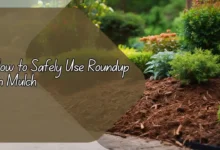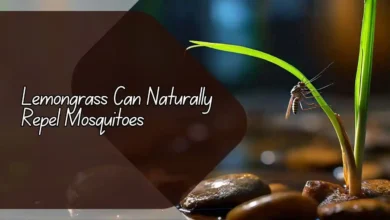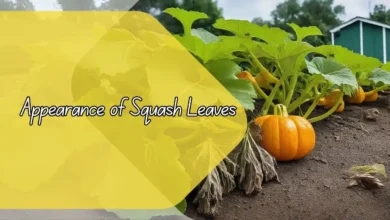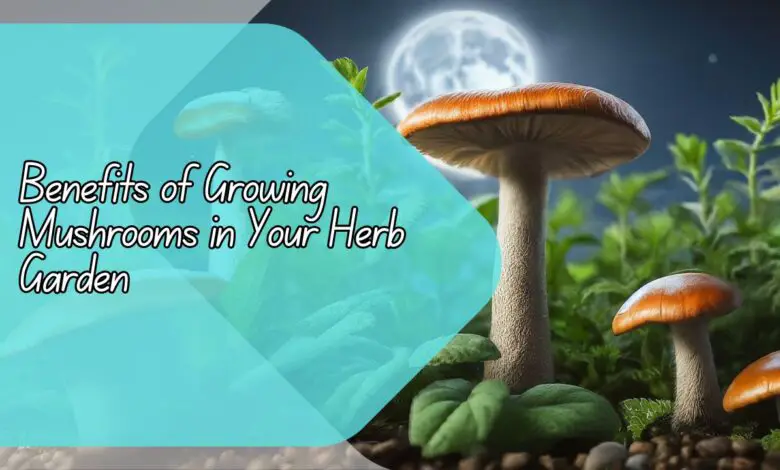
The Surprising Benefits of Growing Mushrooms in Your Herb Garden
In this article, we will explore the unexpected advantages of cultivating mushrooms alongside herbs in your garden. From enhancing soil health to providing a sustainable source of fresh produce, growing mushrooms can be a rewarding addition to your gardening endeavors. Let’s delve into the fascinating world of fungi and discover how they can benefit your herb garden.
Why should I consider growing mushrooms in my herb garden?
Integrating mushrooms into your herb garden can offer a myriad of benefits. Firstly, mushrooms are natural decomposers, aiding in the breakdown of organic matter and enriching the soil with essential nutrients.
This can improve the overall health of your garden and promote the growth of your herbs. Additionally, mushrooms create a symbiotic relationship with plants, exchanging nutrients and contributing to increased crop yields.
Furthermore, growing mushrooms can add variety and flavor to your culinary creations. With a diverse range of mushroom species available, you can experiment with different textures and tastes in your dishes. From earthy shiitakes to delicate oyster mushrooms, your herb garden can become a treasure trove of gourmet ingredients.
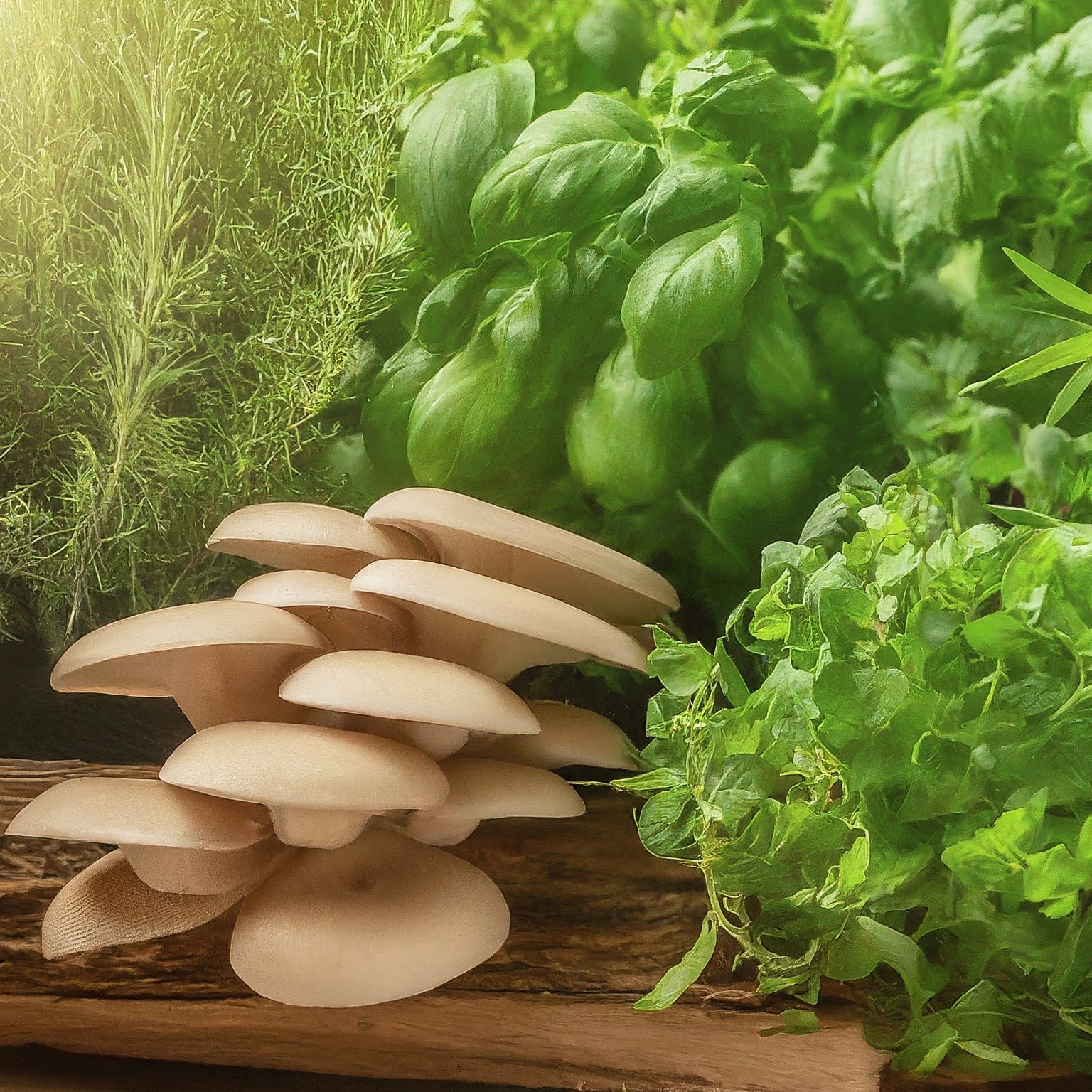
How do mushrooms benefit the soil in my herb garden?
Mushrooms play a crucial role in enhancing soil health by breaking down organic matter and releasing nutrients that are readily absorbed by plants. As natural decomposers, mushrooms help to cycle nutrients through the soil, making them more accessible to your herbs.
This process improves soil structure, increases water retention, and promotes a healthy microbial community in your garden.
Additionally, mushrooms can detoxify the soil by absorbing and neutralizing harmful pollutants and heavy metals. This ability to remediate contaminated soil makes mushrooms a valuable ally in sustainable gardening practices. By cultivating mushrooms in your herb garden, you are not only enriching the soil but also contributing to environmental restoration.
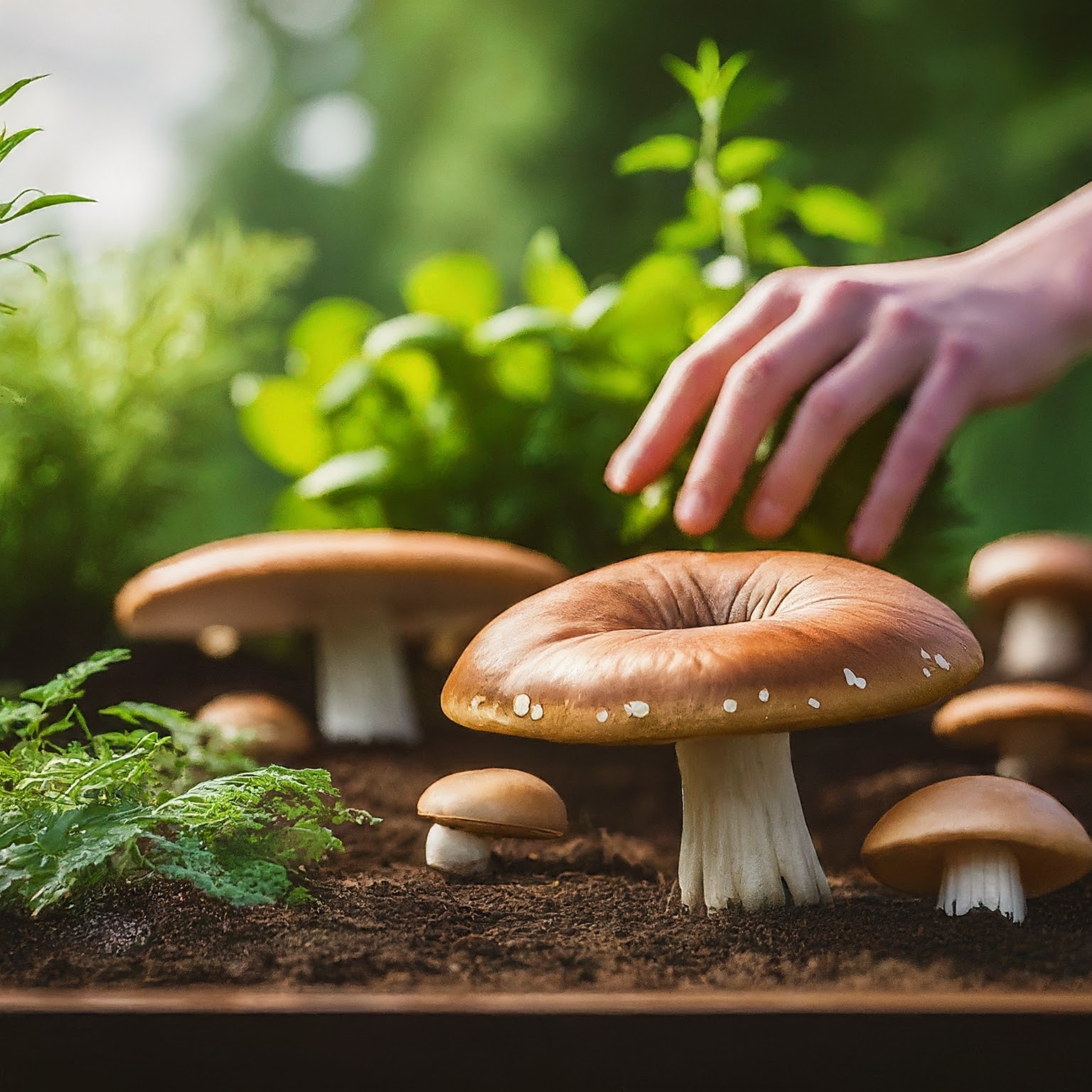
Can mushrooms in my herb garden boost my immune system?
Certain mushroom species, such as shiitake and reishi, are renowned for their immune-boosting properties. These mushrooms contain bioactive compounds that stimulate the immune system and have anti-inflammatory effects.
By incorporating these beneficial fungi into your diet, either fresh from your herb garden or through supplements, you can support your overall health and well-being.
In addition to enhancing immunity, mushrooms are also rich in vitamins, minerals, and antioxidants that can help combat oxidative stress and promote vitality. Including a variety of mushrooms in your herb garden can provide a natural source of nutrition that supports your immune system and contributes to a balanced diet.
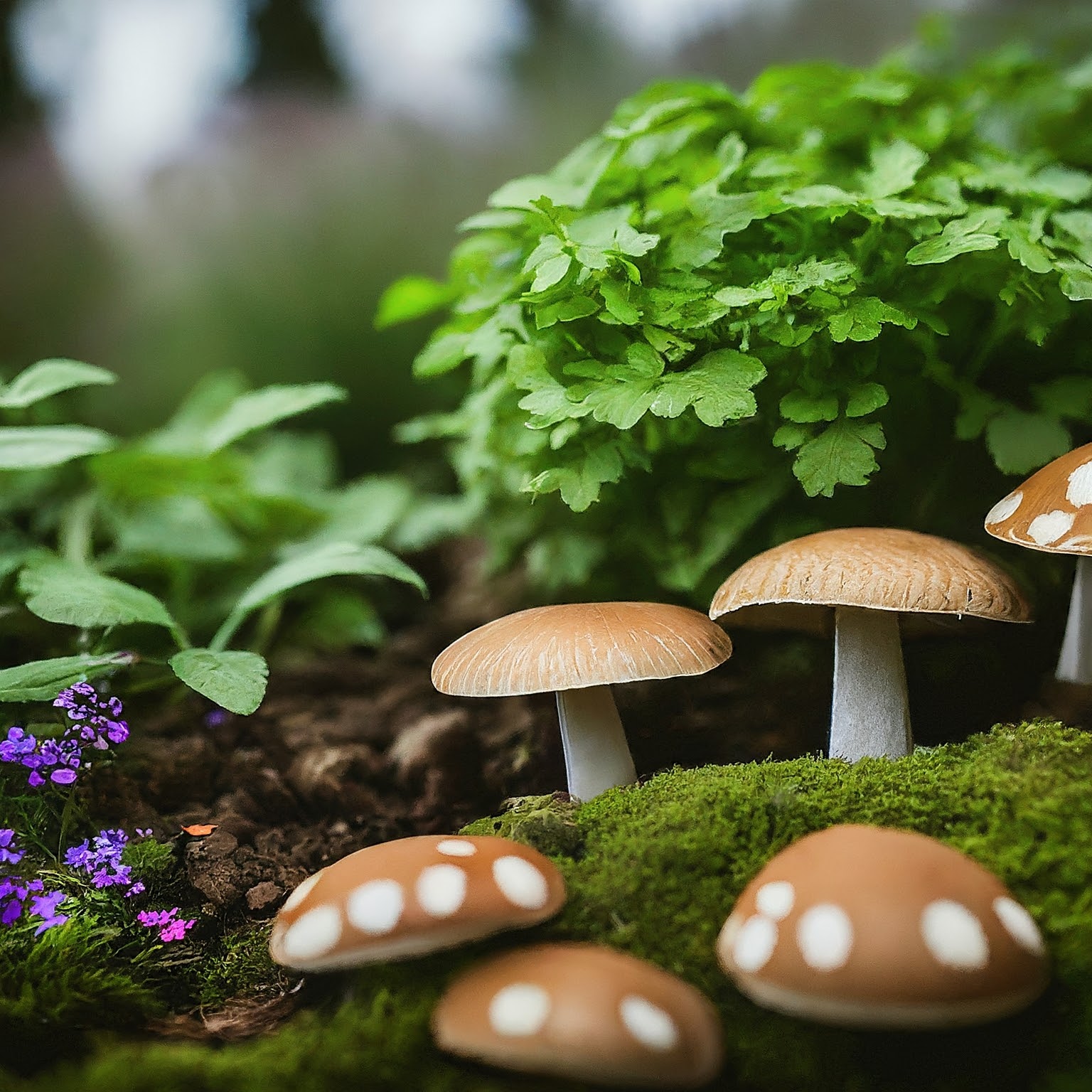
How do I get started with growing mushrooms in my herb garden?
Begin by selecting a suitable mushroom species for your herb garden based on your climate and growing conditions. Mushroom growing kits or spawn can be purchased from nurseries or online suppliers to simplify the cultivation process. Choose a shady spot in your garden with rich, well-draining soil to create an ideal environment for mushroom growth.
Follow the instructions provided with your mushroom kit or spawn to prepare the substrate, inoculate it with the mushroom mycelium, and maintain optimal growing conditions. Regularly mist the mushroom bed to keep it moist, and monitor the progress of your mushrooms as they develop. With patience and care, you can enjoy a bountiful harvest of fresh mushrooms from your herb garden.
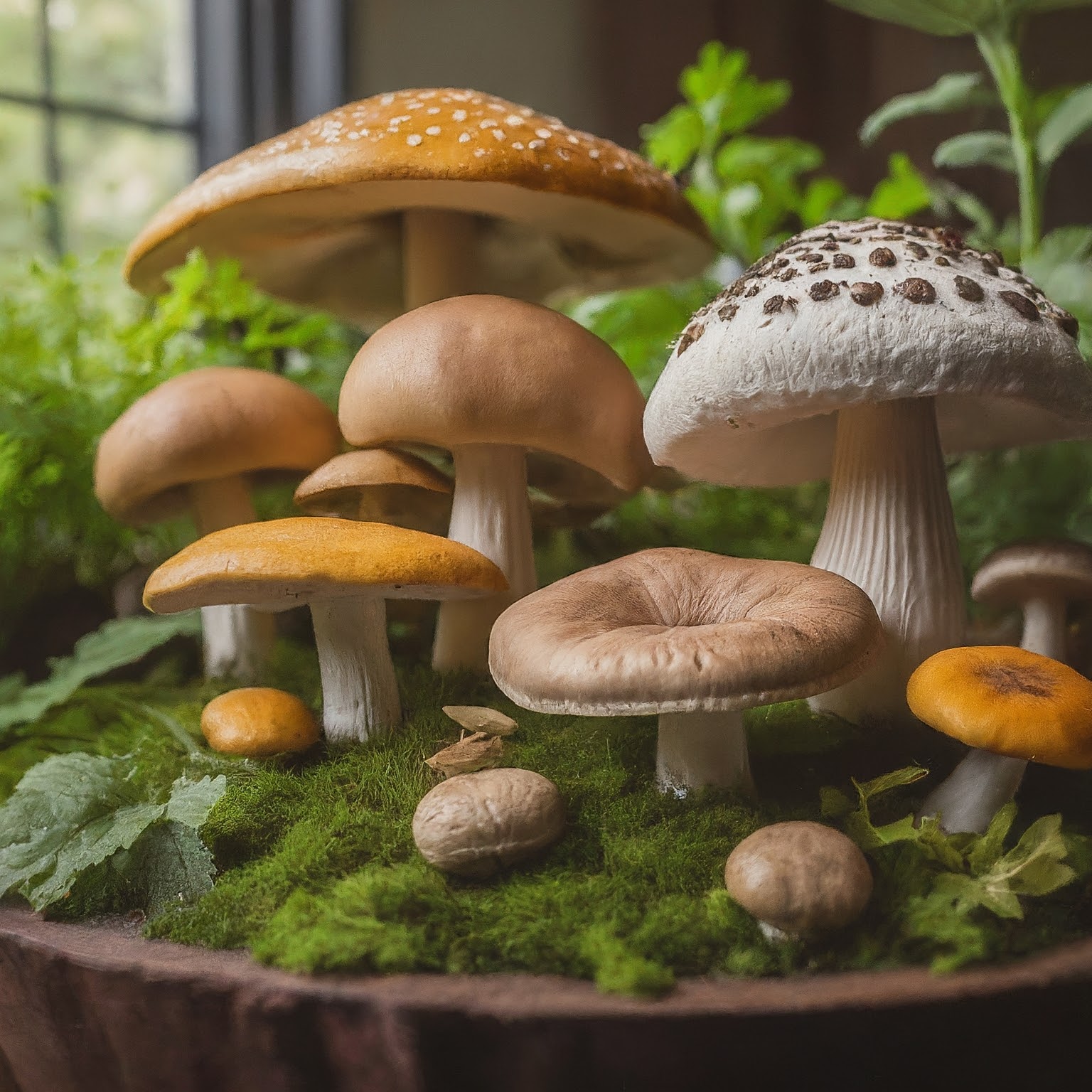
Are there any potential risks associated with growing mushrooms in my herb garden?
While mushrooms are generally safe to grow in herb gardens, it is important to exercise caution when foraging wild mushrooms or consuming unfamiliar species. Some wild mushrooms can be toxic or cause adverse reactions if ingested, so it is advisable to educate yourself on mushroom identification and only consume mushrooms from reputable sources.
Additionally, certain individuals may be allergic to mushrooms or have sensitivities to specific species. If you have any concerns about growing or consuming mushrooms, consult with a healthcare provider or a mycologist for guidance. By practicing proper mushroom cultivation and consumption, you can enjoy the benefits of mushrooms in your herb garden safely.
Conclusion
Integrating mushrooms into your herb garden can provide a host of surprising benefits, from enhancing soil health to boosting your immune system.
By cultivating mushrooms alongside your herbs, you can create a harmonious ecosystem that supports the growth of healthy plants and provides a sustainable source of fresh produce. Explore the world of mushrooms and discover the joy of growing these versatile fungi in your garden.
FAQs
Can mushrooms be grown indoors?
Yes, mushrooms can be grown indoors using mushroom growing kits or by creating a suitable growing environment in your home. Choose a well-ventilated area with indirect light and maintain proper humidity levels to facilitate mushroom growth.
How often should I water my mushroom bed?
It is recommended to mist your mushroom bed with water regularly to keep it moist, but not waterlogged. Monitor the moisture levels of the substrate and adjust your watering frequency accordingly to ensure optimal conditions for mushroom growth.
Are all mushrooms edible?
No, not all mushrooms are edible, and some wild mushrooms can be toxic or cause adverse effects if consumed. It is essential to properly identify mushrooms before consuming them and only eat mushrooms that have been sourced from reputable suppliers.
How long does it take for mushrooms to grow in my herb garden?
The time it takes for mushrooms to grow depends on the species and growing conditions. In general, mushrooms can be harvested within a few weeks to several months after inoculation, allowing you to enjoy a continuous supply of fresh mushrooms from your herb garden.
Can I replant mushroom remnants in my herb garden?
While it is possible to reuse mushroom remnants or mycelium to cultivate new mushrooms, the success rate may vary. Properly prepare the substrate, ensure optimal growing conditions, and monitor the progress of the mushrooms to increase the chances of successful cultivation.

